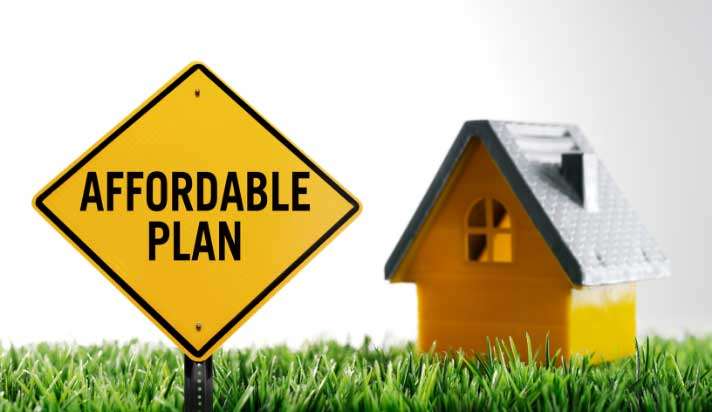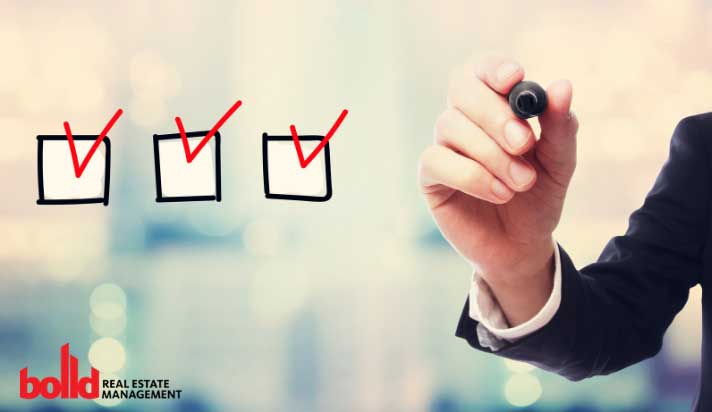In 2018, 66.2% of first-time buyers in Canada bought their homes because they wanted to become homeowners, with 50.6% of these buyers under 35 years of age. If you are a first-time buyer, you will generally have more questions than someone who has already gone through the process. Some of the questions you may have, could be:
- What are important moving in essentials
- What can you afford?
- Are you ready to be a homeowner?
Here is your step-by-step guide for buying your first home:
1. How much can you afford?

Before you start thinking about buying a home, you need to know exactly how much you can afford. The typical deposit for a house under $500,000 in Canada is 5%, so it is worth checking the price to figure out how much you need to save.
What you need to consider:
- Deposit (usually about 5% of the purchase price, the higher the amount, the better it exhibits interest and that you are comfortable with your finances)
- Household income (mortgage brokers ask that Self employed show at least 2 – 3 years of consistent income) Always speak to a mortgage broker before shopping
- Current liabilities or debts
- Your estimated monthly costs (Should include home insurance cost, annual property tax divided into 12 months, monthly strata fees if it is a condo/townhouse and utilities)
- One-time costs (Conveyancing fee is abou $1,000 to $1,500, GST if it is a brand new home and Property Transfer Tax: In BC, the general property transfer tax applies for all taxable transactions. The general property transfer tax rate is:
- 1% of the fair market value up to and including $200,000
- 2% of the fair market value greater than $200,000 and up to and including $2,000,000
- 3% of the fair market value greater than $2,000,000
**Exemptions: To qualify for a full exemption, at the time the property is registered you must:
- Be a Canadian citizen or permanent resident
- Have either:
- Lived in B.C. for at least a year immediately before the date you register the property
- Filed at least 2 income tax returns as a B.C. resident in the last 6 taxation years immediately before the registration date
- Have never owned a registered interest in a property that was your principal residence anywhere in the world at any time
- Have never received a first time home buyers’ exemption or refund
and the property must:
- Only be used as your principal residence
- Have a fair market value of $500,000 or less
- Be 0.5 hectares (1.24 acres) or smaller
You may qualify for a partial exemption from the tax if the property:
- Has a fair market value less than $525,000
- Is larger than 0.5 hectares
- Has another building on the property other than the principal residence
Newly built home exemption
The newly built home exemption reduces or eliminates the amount of property transfer tax you pay when you purchase a newly built home.
A newly built home includes:
- A house constructed and affixed on a parcel of vacant land
- A new apartment in a newly built condominium building
- A manufactured home that is placed and affixed on a parcel of vacant land
- An already constructed house that is removed from one parcel of land and affixed to another parcel of vacant land, as long as the house hasn’t been occupied since it was placed on the new parcel of vacant land
- A house resulting from the division of an existing improvement affixed to a parcel of land that was also subdivided, as long as this house hasn’t been occupied since the subdivision of the parcel
- A house converted from an existing improvement on the land. The previous improvement couldn’t have been used as residential (e.g. a warehouse converted into apartments)
If you qualify for the exemption, you may be eligible for either a full or partial exemption from the tax.
If you paid property transfer tax when you purchased vacant land and you now have a newly built home on the land, you may be eligible for a refund of the property transfer tax you paid.
You should also consider the many different types of mortgages and which are available to you. As well as starting to save for an emergency fund, in case you have any unexpected maintenance or repair costs to pay out for.
2. Can I get financial assistance?

There are two benefits available to first time buyers:
The First-Time Home Buyers’ Tax Credit
To help first time buyers get on to the housing market. The credit amount awarded is determined by multiplying the lowest personal federal income tax rate for the year by $5,000
In their 2021 budget, the Liberals have proposed to increase the maximum home price for the CMHC First-Time Home Buyer Incentive from about $505,000 to $722,000 for buyers in Toronto, Vancouver, and Victoria. Their proposals include an increase in the income eligibility threshold from $120K to $150K and the home price limit from 4 times household income to 4.5 times. These changes come as Toronto`s housing market and Vancouver real estate climb to new all-time highs.
These changes are still preliminary and have not been approved by Parliament. We have updated our calculator to help you prepare for these new changes.
Eligibility criteria
- You (spouse/common-law partner) bought a qualifying home in Canada
- The home will be your principal residence
- You (spouse/common-law partner) did not own and live in another home in the year of purchase or any of the four prior years (first-time home buyer)
The Home Buyer’s Plan
This plan allows you to withdraw money from your Registered Retirement Savings Plans tax-free to help you purchase your first home.
Eligibility criteria
- You must be considered a first-time buyer
- You will need a signed agreement to buy or build a qualifying home
- Contributions must be in your savings plan for at least 90 days before they can be used
You should also talk to a mortgage advisor to make sure you’re taking advantage of all the benefits available to you as a first-time home buyer.
3. First-time home buyer incentive

The First-Time Home Buyer Incentive was created to make it easier for you to buy a home, while lowering your monthly mortgage payments. This program is a shared equity mortgage, which means that the government shares in the property value. You will pay back the same percentage of your home value when you sell your house or within 25 years.
Example: You receive a 5% incentive of the purchase price of $200,000, or $10,000. If your home increases to $300,000 your payback would be 5% of the current value or $15,000. Alternatively, you receive a 10% incentive of the purchase price of $200,000, or $20,000. If the value of your home decreases to $150,000, your repayment value will be 10% of the current value or $15,000.
Eligibility criteria
- you have never purchased a home
- you did not occupy a home that your current spouse/common-law partner owned in the last 4 years
- you’ve recently had a breakdown of your marriage/common-law partnership
This addition to your down payment will lower your mortgage carrying costs, making owning your home even more affordable.
4. Finding your dream home

Now that you have the basic financial information understood, you should also consider what you want in your dream home. Do you want somewhere with a garage? Room for your family and guests? That downstairs toilet?
You are going to be in this house for at least five years, so you need to decide on what you want in a home, what would be nice to have, but isn’t necessary, and what you definitely don’t want. This is an important and expensive purchase, and you need to make sure it is the right choice for everyone involved.
It may be worth checking out different neighborhoods, home styles, and listings online in order to get a feel for what’s out there. It may help to view different properties to see what works, as when you are in a place, your priorities may change.
You should also consider:
- Determine the seller’s motivations for moving.
- Look how long the property’s been on the market.
- Look into housing starts and home sales to determine whether the market is competitive.
- Compare property prices in the neighborhood.
It’s okay to ask your agent or lawyer for guidance at any point.
5. Buying your first home

Now that you’ve found the house you want to turn into your home, it’s time for you to make an offer. You should also consider speaking with an estate agent or your lawyer, due to the legal aspects of purchasing a home, to make sure you’ve identified everything in your offer. They will also help you personalize your offer, and make sure that you include things such as:
- Offer amount
- Deposit amount
- Closing date
- Offer expiration date
- Other conditions you want met
The terms of your offer may change during the negotiation period, so it is best that your first offer stands out.
6. Closing the deal

Do you have all your mortgage documents ready to sign? Are the funds ready to be transferred to the seller? Do you need someone to oversee the transfer process to make sure everything is completed? Is the property in the same condition as what is in the contract?
You should also:
- Review all the documents and make sure your personal information is correct.
- Make sure you understand all the fees, loan, rate, payment amount, and repayment schedule
- You always have the opportunity to walk away from the deal if you are not comfortable with it.
Once you’ve reviewed and signed all the documents and you receive the house keys, you are the new homeowner. You should lastly check if you need house insurance or contents insurance before you move in.


